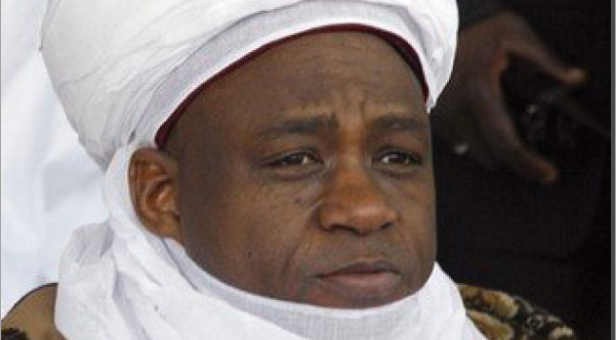Breaking News
Sultan of Sokoto disagrees with Northern governors over Eid-el Fitr prayers

The Sultan of Sokoto disagrees with some Nigerian governors in the north over weekend’s Eid-el-Fitr prayers.
Sultan Sa’ad Abubakar, who is the President-General of the Nigerian Supreme Council for Islamic Affairs (NSCIA), has given a directive that Muslims should observe the prayers at home as part of their observance of the COVID-19 protocols and to prevent the spread of the virus.
Coronavirus cases in Nigeria increased further on Wednesday with 284 cases reported by the country, despite efforts by authorities to flatten the curve of the pandemic.
The new cases, confirmed by specialist agency the Nigeria Centre for Disease Control on Twitter took the country’s total infections to 6,677 out of which 1,840 have been discharged with 200 losing their lives.
But some of the governors have eased the lockdown, allowing Muslims to observe congregational prayers.
Kano State Governor Abdullahi Ganduje earlier in the week announced that Muslims would be allowed to observe the Jumat prayer tomorrow and the Eid prayers subsequently.
Not only Kano, Bauchi State Governor Bala Mohammed announced that Eid prayers would be allowed in the state with participants observing social distancing and wearing face masks
Other states like Yobe, Jigawa, Gombe, Borno and Zamfara have also opened mosques.
In a statement on Wednesday, NSCIA Deputy Secretary-General, Prof. Salisu Shehu, “as the month of Ramadan is gradually coming to an end and the Eid-el-fitr is approaching, it is crucial to reiterate that we are living in unusual times when almost everything normal has become abnormal, including social gatherings and large congregational prayers.
“Therefore, Muslims are enjoined to note that Eid-el-fitr is not a compulsory religious activity (fard) and at no point should it be observed if doing so will undermine the fundamental purpose of Shari’ah: security, a multifaceted concept which includes personal, community, national, environmental and health components, among others.
“Muslims should observe their Eid prayers while still taking necessary safety measures regarding personal hygiene, facial masks and social distancing.
“It is even advisable that in such places, massive gatherings at one Eid ground in a big city should be avoided. Rather the Eid could be performed in area-Mosques to avoid unmanageable crowds.
“However, in places where the ban on large congregational prayers and socio-religious gatherings is still in force, Muslims are directed to be law-abiding while appreciating that intentions supersede actions and actions are judged on the basis of intentions, as Prophet Muhammad said (Buhari and Muslim).
“Muslims are advised to be law-abiding in all circumstances while praying to Allah fervently in their various homes, if that is what the situation requires, to forgive our sins and heal the world from destructive and disruptive diseases like Coronavirus. Certainly, people all over the world at large and Nigeria in particular are under intense pressure and the sooner the pandemic is over, the better for us all.”
Eld-Fitri signifies the end of the one-month Ramadan fast. The prayers are likely to hold on Saturday or Sunday depending on when the Shawwal month is sighted.
The Sultan’s admonition was reechoed in Ilorin by the chief Imam of Uthman Bn Affan Mosque, Mallam Yusuf Alfulani-Abdullah, who asked all Muslims in Kwara State to observe the Eid-el fitr prayer in their homes.
To continue telling under-reported stories, we need your support for the work we do, donate to https://www.paystack.com/paynewswirengr
Also, kindly donate to the work we do using this interim PAYPAL ID https://www.paypal.me/NewsWireNGR




